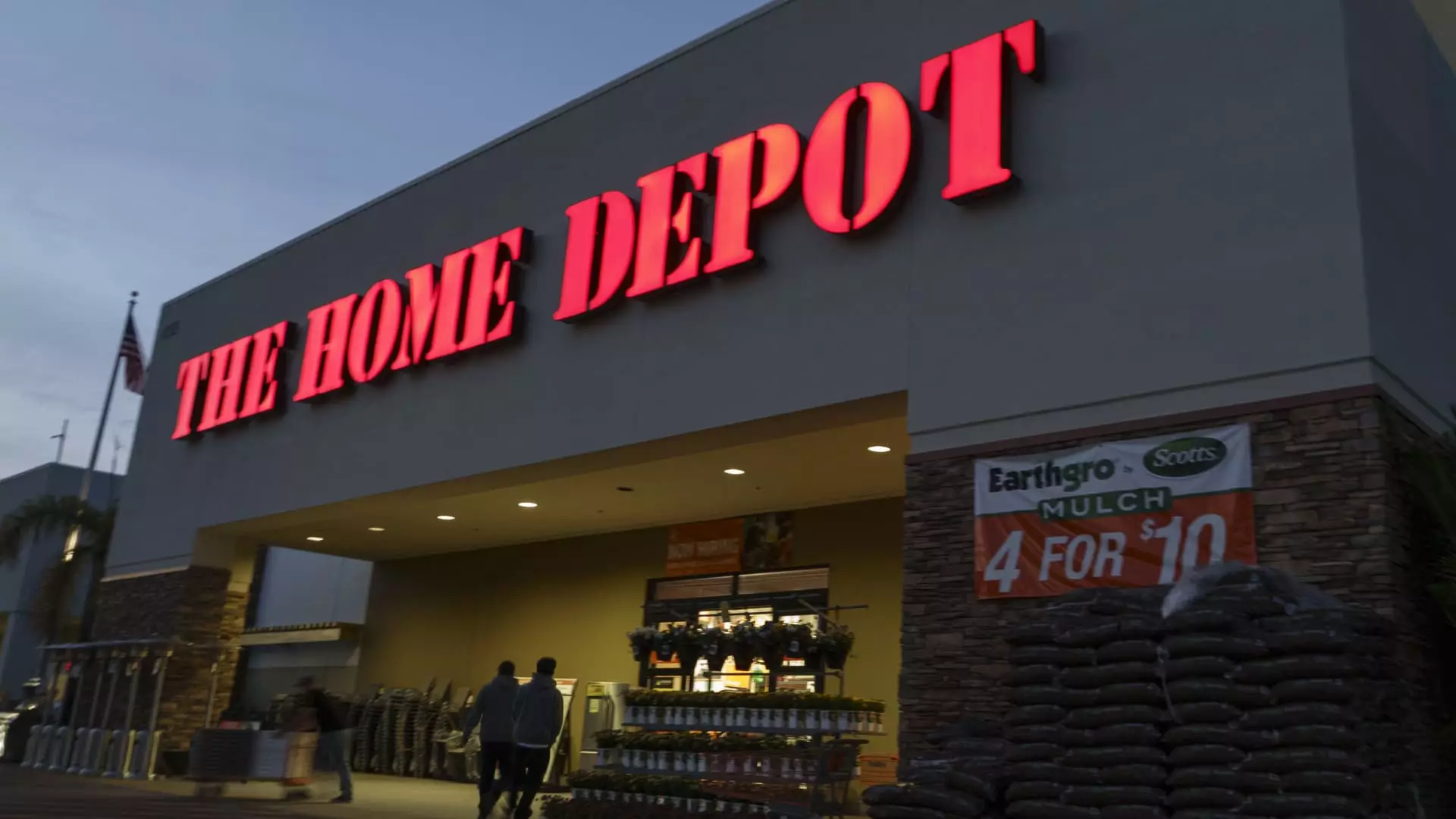In the wake of notable economic turbulence, marked by the persistent threat of tariffs and wavering company earnings, investors are grappling with a unique dilemma. The stock market has become a roller-coaster of emotions, swinging between hope and despair, leaving many to wonder where to safely allocate their funds. However, amidst this uncertainty, a rallying cry is emerging from the chaos: dividend-paying stocks. For those investors still navigating the choppy waters, it seems that navigating toward consistent returns isn’t merely a hope; it’s a calculated strategy that could yield fruitful dividends—quite literally.
Investors are right to be cautious as they seek opportunities. The reality is stark: economic variables are in constant flux. As earnings reports from some of the largest companies suggest, the path forward is littered with ambiguity. Yet, understanding how to capitalize on consistent dividend yield can serve as a lifeline for those willing to analyze their choices. In this hunt for reasonable returns, the expertise of top Wall Street analysts can provide clarity. Drawing upon their in-depth assessments, investors can identify stocks that not only promise dividends but also reflect resilience in challenging economic environments.
Home Depot: The Retail Champion
Consider Home Depot (HD) as a prime example of a steadfast contender in the turbulent world of retail. The home improvement giant recently released its mixed results for Q1 of fiscal year 2025. While analysts had mixed feelings, HD stood tall with a clear message: no price hikes in response to potential tariffs. The company has declared a dividend of $2.30 per share, translating to a respectable annualized yield of 2.5%. This commitment indicates a company prioritizing stability over opportunism, a trait rarely seen in the wake of economic ambiguity.
Evercore analyst Greg Melich’s endorsement of HD stock showcases not just mere confidence but a belief that our retail segment is on the brink of noteworthy transformation. His insights reflect a larger narrative: Home Depot’s ability to adapt, invest in technology, and its robust online sales growth are all signs of resilience. It’s apparent that despite external pressures, Home Depot is laying a foundation that could position it as the next breakout retail name—much like its predecessors, Costco and Walmart.
However, investors should approach such optimism cautiously. Is the “retail rebound” merely a mirage in the desert of consumer reluctance, or is it an inflection point? The answer could define the investment trajectory for many seeking to hedge against market volatility.
Diamondback Energy: Navigating the Boom and Bust
Switching gears to the energy sector, we encounter Diamondback Energy (FANG), a company deftly maneuvering the double-edged sword of fluctuating commodity prices. Their recent Q1 results exceeded expectations, an impressive feat in such a mercurial sector. Yet, the company has taken prudent steps by curbing immediate activity and prioritizing free cash flow—an astute move for any investor wary of future price swings.
RBC Capital analyst Scott Hanold recognizes the company’s efforts, reinforcing a buy rating. Diamondback’s commitment to returning nearly 55% of its adjusted free cash flow to shareholders through dividends and stock buybacks indicates a focus on shareholder value rather than unchecked expansion. It’s a bold admission in today’s landscape, where many companies are living paycheck to paycheck. The challenge remains whether this strategy will continue to retain investor confidence and whether it can weather external shocks.
In an industry characterized by boom and bust, Diamondback’s fiscal prudence provides a necessary reassurance. However, reliance on energy prices is inherently risky, as geopolitical tensions and policy shifts can drastically shift the landscape overnight.
ConocoPhillips: An Oil Behemoth’s Balancing Act
Another heavyweight in this conversation is ConocoPhillips (COP). With its recent market-beating earnings, the company stands as a testament to adaptability in uncertainty. Their decision to scale back capital expenditures while keeping an eye on production targets reflects a cautious optimism that many companies lack in volatile times. Additionally, ConocoPhillips’s emphasis on shareholder returns through a hefty $2.5 billion payout underscores a strategic commitment to maintaining investor loyalty amidst market uncertainty.
Goldman Sachs analyst Neil Mehta’s reassertion of a buy rating illustrates the faith existing in ConocoPhillips, though he wisely cites the unpredictability of oil prices as a specter looming over the company’s prospects. The forecast for lower breakeven points as the company’s LNG projects materialize speaks volumes about long-term planning, but can they maintain momentum against potential downturns?
In a world where caution and confidence must coexist, ConocoPhillips exemplifies the delicate balance of navigating both impending market shifts and investor expectations. The volatility of energy markets requires a steady hand, and ConocoPhillips seems determined to provide just that.
Investors today are at a crossroads, faced with choices that could define their financial stability in uncertain times. The role of dividend-paying stocks such as Home Depot, Diamondback Energy, and ConocoPhillips in this landscape cannot be understated; they serve not just as investments, but as anchors in a tempestuous financial sea. The journey toward financially gratifying decisions in an intricate political and economic milieu continues.

